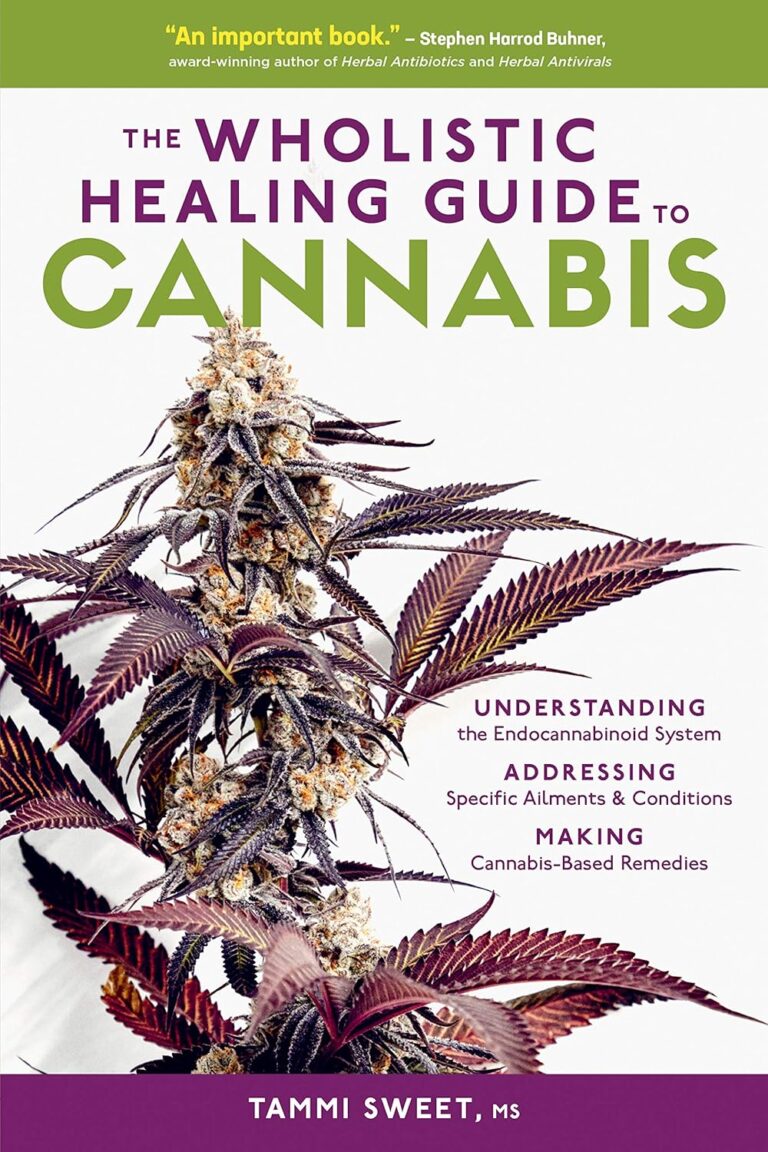
Support Gut Health Naturally
The Digestive Benefits of Cannabinoids:
How CBD and THC Support Gut Health Naturally
In recent years, the understanding of cannabinoids and their role in promoting digestive health has grown significantly.
As researchers continue to uncover the powerful properties of these naturally occurring compounds found in the cannabis plant, it is becoming clear that cannabinoids may offer significant benefits for individuals suffering from a wide range of digestive disorders.
This article explores the intricate relationship between cannabinoids and the digestive system, shedding light on how they might contribute to gut health, inflammation reduction, and the overall improvement of digestive function.
The Big Question: What Are Cannabinoids?
Cannabinoids are naturally occurring compounds found in the cannabis plant.
The two most researched cannabinoids are:
- THC: Known for its psychoactive effects.
- CBD: Non-psychoactive and widely studied for its therapeutic properties.
These compounds interact with the endocannabinoid system (ECS) in the human body, which is involved in regulating various physiological processes, including digestion.
The Endocannabinoid System and Digestive Health
The endocannabinoid system (ECS) is integral to the proper functioning of the digestive system.
It regulates processes such as gut motility, inflammation, and pain perception.
Cannabinoid receptors (CB1 and CB2) are present throughout the gastrointestinal tract, and when cannabinoids bind to these receptors, they can influence gut function in several ways.
- CB1 receptors: Primarily found in the central nervous system, including the brain and spinal cord, as well as the gut, CB1 receptors regulate appetite, nausea, and gastric motility.
- CB2 receptors: Located mainly in the immune system, including the gastrointestinal tract, CB2 receptors help regulate inflammatory responses in the gut.
By interacting with these receptors, cannabinoids can potentially help manage conditions such as irritable bowel syndrome (IBS), inflammatory bowel disease (IBD), Crohn’s disease, and ulcerative colitis, all of which are characterized by inflammation and dysregulation of gut function.
Reducing Gut Inflammation with Cannabinoids
Inflammation is a hallmark of many digestive disorders, such as IBD and Crohn’s disease. Cannabinoids, particularly CBD, have shown potential in reducing intestinal inflammation. This happens because:
- CBD inhibits pro-inflammatory cytokines, reducing inflammation in the gut.
- Cannabinoids modulate the immune response, preventing an overreaction in autoimmune disorders like ulcerative colitis.
These properties make cannabinoids an attractive option for individuals looking to manage gut inflammation without relying solely on conventional medications.
Pain Relief and Cannabinoids
Digestive conditions often come with chronic pain, making it a significant symptom to manage.
Both CBD and THC have been found to provide pain relief by interacting with the endocannabinoid system:
- THC binds to CB1 receptors in the nervous system to block pain signals.
- CBD reduces pain perception by interacting with serotonin receptors, involved in mood and pain regulation.
This combination of pain relief mechanisms offers promise for individuals suffering from conditions like IBS or gastroparesis.
Regulating Gut Motility with Cannabinoids
One of the key ways cannabinoids influence digestive health is by regulating gut motility, the movement of food and waste through the gastrointestinal tract.
Abnormal gut motility is a common issue in digestive disorders such as IBS, resulting in symptoms like constipation or diarrhea. Cannabinoids can help regulate gut motility by:
- THC slows down gut movement, which can be helpful for diarrhea.
- CBD reduces inflammation and promotes balanced gut motility in individuals with constipation.
This ability to modulate gut movement makes cannabinoids potentially useful for addressing both extremes of IBS.
Relief from Nausea and Vomiting
Nausea and vomiting are common symptoms of many digestive disorders.
THC is well-known for its ability to combat nausea by acting on CB1 receptors in the brain’s vomiting center, making it a widely used option for patients experiencing chemotherapy-induced nausea.
Some key benefits include:
- Reducing nausea.
- Preventing vomiting.
This makes cannabinoids a natural solution for those dealing with chronic digestive issues that cause nausea.
Stimulating Appetite for Better Digestive Health
Loss of appetite and unintentional weight loss are often side effects of digestive disorders like Crohn’s disease and IBD.
THC has been shown to effectively stimulate the appetite; while helping individuals maintain better nutritional intake.
Key benefits include:
- Increased appetite.
- Better nutritional absorption.
For those struggling to eat due to digestive discomfort, cannabinoids can be a helpful addition to their treatment plan.
Are Cannabinoids Safe for Digestive Health?
\While the potential benefits of cannabinoids for digestive health are promising, it’s important to understand the possible side effects:
- THC may cause psychoactive effects, including dizziness or impaired motor function.
- CBD is generally considered safe but can interact with certain medications, potentially leading to adverse reactions.
It’s essential to consult with a healthcare professional before incorporating cannabinoids into your digestive health regimen.
Conditions That May Benefit from Cannabinoids
Several digestive conditions have shown positive responses to cannabinoid treatments, including:
- Irritable Bowel Syndrome (IBS): Pain relief, reduced inflammation, and regulation of gut motility.
- Inflammatory Bowel Disease (IBD): Reduced inflammation and improved quality of life.
- Crohn’s Disease: Pain management and inflammation reduction.
- Ulcerative Colitis: Calming the immune response and improving gut health.
- Gastroparesis: Potential relief from nausea and regulation of gut motility.
Conclusion
Cannabinoids offer a promising therapeutic option for individuals suffering from a variety of digestive disorders. By interacting with the endocannabinoid system, CBD and THC can:
- Reduce inflammation.
- Alleviate pain.
- Promote healthy gut motility.
- Combat nausea and vomiting.
- Stimulate appetite.
To fully understand the long-term effects more research is necessary.
The current evidence suggests that cannabinoids can significantly improve digestive function and overall quality of life for those with chronic digestive conditions.
However, it’s crucial to approach cannabinoid use under the guidance of a healthcare professional.
Sources:
- Izzo, A.A., & Sharkey, K.A. (2010). Cannabinoids and the gut: New developments and emerging concepts. Pharmacology & Therapeutics, 126(1), 21-38.
- Couch, D.G., Tasker, C., Theophilidou, E., Lund, J.N., & O’Sullivan, S.E. (2017). Cannabidiol and the gut: New developments for inflammation and motility. Journal of Clinical Medicine, 6(2), 19.
- Massa, F., Marsicano, G., Hermann, H., Cannich, A., Monory, K., Cravatt, B.F., Ferri, G.-L., & Lutz, B. (2004). The endogenous cannabinoid system protects against colonic inflammation. Journal of Clinical Investigation, 113(8), 1202–1209.
- Wright, K., Rooney, N., Feeney, M., Tate, J., Robertson, D., Welham, M., & Ward, S.G. (2005). Differential expression of cannabinoid receptors in the human colon: cannabinoids promote epithelial wound healing. Gastroenterology, 129(2), 437-453.
- DiPatrizio, N.V. (2016). Endocannabinoids in the gut. Nature Reviews Gastroenterology & Hepatology, 13(8), 501-517.
- Hasenoehrl, C., Taschler, U., Storr, M., Schicho, R. (2017). The gastrointestinal tract – a central organ of cannabinoid signaling in health and disease. Neurogastroenterology & Motility, 29(5), e13149.
- Nagarkatti, P., Pandey, R., Rieder, S.A., Hegde, V.L., & Nagarkatti, M. (2009). Cannabinoids as novel anti-inflammatory drugs. Future Medicinal Chemistry, 1(7), 1333-1349.
- Cluny, N.L., Keenan, C.M., Reimer, R.A., Le Foll, B., & Sharkey, K.A. (2015). Prevention of diet-induced obesity effects on body weight and gut microbiota in mice treated chronically with cannabidiol. Obesity, 23(11), 2251-2260.
- Klein, T.W. (2005). Cannabinoid-based drugs as anti-inflammatory therapeutics. Nature Reviews Immunology, 5(5), 400-411.
- Russo, E.B. (2011). Taming THC: Potential cannabis synergy and phytocannabinoid-terpenoid entourage effects. British Journal of Pharmacology, 163(7), 1344-1364.
These sources provide foundational research on cannabinoids, their interactions with the digestive system, and their role in treating digestive disorders.
🧬 Medical Disclaimer:
This content is for informational purposes only and should not be considered medical advice.
It is not intended to replace consultation with a qualified healthcare professional.
Always consult a doctor or healthcare provider before making any decisions related to your health, especially regarding medications, treatments, or supplements.
The information presented here is based on current research and understanding but may not be applicable to all individuals or circumstances.


Thanks for your help and for writing this post. It’s been great.
Thanks for taking the time to comment. Happy to help:) Jenn
I think other web-site proprietors should take this site as an model, very clean and fantastic user friendly style and design, as well as the content. You’re an expert in this topic!